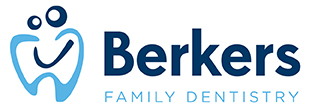7 Early Signs of Tooth Decay
Cavities can be described as holes or spots of decay in the surfaces of your teeth. Some reasons behind these include an accumulation of plaque, frequent consumption of sugary snacks and inadequate maintenance for oral hygiene. Possible treatments consist of dental fillings, root canal therapy and tooth extraction. The earlier cavity is treated, the more probable it becomes to have a predictable result and the best possible oral health.
When Americans reach their mid-30s, around 80% of them have at least one cavity. Cavities are usually chronic diseases that can happen to anyone.
Tooth decay can occur at any age, but cavities are seen more often in kids. This is because many children do not brush their teeth correctly or frequently and they eat and drink a lot of sugary foods.
Adults can also have cavities. Sometimes, decay forms again at the edges of cavities that were treated when they were children. Adults are more prone to having receding gums as well. This condition exposes your teeth roots to plaque, which can cause cavities.
In this blog, we will talk about the 7 early signs of tooth decay and how to prevent cavities.
7 Early Signs of Tooth Decay
Here are some of the early signs and symptoms of tooth decay:
1. Visible Discoloration
When a cavity starts forming, it can create dark spots on the tooth’s outer layer. These marks might appear similar to basic staining in the beginning and you could think of them as small tooth discoloration. As time passes by, this dark spot grows bigger which means there is decay happening in your tooth. Sometimes, cavities might seem like white spots or light streaks on the tooth.
2. Sensitivity to Hot or Cold
With the decay’s progression into the tooth, it reaches the dentin. Dentin is a softer porous substance; therefore, problems related to sensitivity may begin. You might feel your teeth are sensitive or observe one or two particular teeth with sensitivity issues. If you feel pain in one tooth when you drink something hot or cold, this could be a sign that there is a cavity.
3. Holes or Craters on Teeth
The bacteria that exist with a cavity eventually eat into the tooth, creating small holes and pits in the enamel. These openings show that a cavity has formed and you probably need it filled soon. The decay can be taken out without difficulty; then we place new filling to fill up this hole which is now showing.
4. Bad Breath and Unpleasant Taste
Cavities happen when a tooth is harmed by an infection from bacteria. Just like any living creature, the bacteria in your mouth make waste too. This waste can cause bad breath and an unpleasant taste in your mouth. If you realize that you have continuous bad breath which is hard to hide, it could be the moment for a dental inspection.
5. Pain and Discomfort
The tooth that has a cavity might be giving you pain. It could be problematic to bite down on certain foods without experiencing sharp, sudden pain. Some individuals express difficulty in brushing or flossing particular spots due to discomfort or sensitivity. This happens as the dentin is exposed and it starts to impact the internal nerve of the tooth.
6. Swelling or Bleeding Gums
In situations where the cavity is close to the gum line, it’s possible that infection from the tooth could affect surrounding soft tissue. This might lead to gums bleeding or appearing swollen – particularly noticeable when you brush your teeth or use dental floss. Variations in gum health can also cause bleeding, such as with gingivitis disease; therefore, a visit to the dental office becomes necessary.
7. No Symptoms At All
For tiny cavities, sometimes no symptoms appear. In many cases, a person will not realize they have a cavity until the time of their routine dental examination. While it is fortunate to avoid the indications and signs of tooth decay, there may also be difficulties in receiving treatment promptly. The cavity can grow because you might not feel any issue with your teeth.
How to Prevent Cavities
Preventing cavities in the beginning is highly beneficial because it avoids the requirement for fillings and other intrusive treatments.
Certain causes that commonly lead to tooth decay are:
- Poor oral hygiene
- Regular snacking and eating before bed
- Drinking sugary beverages
- Bedtime infant feeding
- Inadequate fluoridation
- Dry mouth
- Worn or loose dental restorations
- Persistent heartburn and acid indigestion
To not have dental cavities, you must keep up with good oral hygiene and notify your dentist if any symptoms appear. If a cavity is found early, it may only need a dental filling instead of more severe treatment.
Hygiene of the teeth is very important for health. Brushing two times every day and flossing habitually can make a good difference to your teeth and also improve mouth health. It is helpful to rinse frequently with mouthwash as it assists in decreasing bacteria and plaque as well.
Do you have a cavity ?
Normally, you cannot easily identify a cavity in its beginning. At times, some cavities manifest as a whitish or chalky spot on the tooth’s enamel. In other serious cases of tooth decay, the color may be discolored brown or black. But usually there are no red alerts to differentiate between them.
So, how can you know if there are few early cavity signs?
Well, a simple periodic X-ray during your visit to the dentist can be of great help in identifying tooth decay that may be caused by a dental cavity.
Dr. Berkers welcomes you!
We offer gentle and friendly treatment from our locally owned practice for a variety of dental concerns such as tooth decays and cavities. Contact us today!
FAQS
Are these spots signs of early stage tooth decay?
Enamel decay is the first step of the tooth decaying process. During this stage, you will notice small, white and chalky spots on your tooth. To confirm it is tooth decay, visit a nearby dentist.
How to stop tooth decay from spreading ?
Following a healthy diet and maintaining the standard oral hygiene practices can help you stop tooth decay from spreading. However, it is crucial for you to consult a trained dentist to be able to avoid further issues.
Can tooth decay be reversed ?
In the early stages, it is possible to reverse tooth decay by following a healthy diet and oral hygiene. But once it starts growing, it is physically impossible to reverse tooth decay. Prevent it, or visit your nearest dentist for more assistance.


